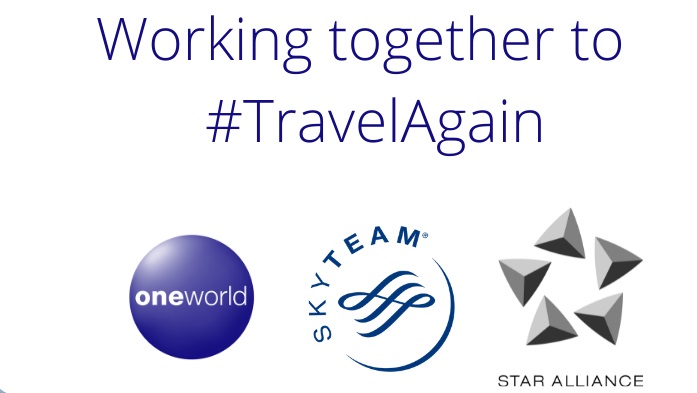To facilitate the safe restart of international travel and restore the value contributed by travel and tourism to the world’s economy, the three global airline alliances oneworld, SkyTeam and Star Alliance are calling on G7 governments, at their upcoming leadership summit on 11-13 June, to agree on a common set of travel and health standards to enable the safe reopening of borders.
COVID-19 has significantly impacted the travel and tourism sector, which has long been a key contributor to many economies. A recent estimate by the OECD (Organisation for Economic Co-operation and Development) showed that international tourism declined by around 80% in 2020. Prior to the pandemic, tourism contributed more than 4% of GDP for the average OECD country, with the World Travel and Tourism Council estimating up to 174 million jobs at risk globally.
In unison, the CEOs of the three global alliances – Kristin Colvile at SkyTeam, Rob Gurney for oneworld, and Jeffrey Goh of Star Alliance – said: “International air travel and tourism are vital to the global economy. With considerable data now available to support government decisions in managing risks, decisive action from G7 members to open borders and support clear, consistent, and data-driven measures, would remove uncertainty, particularly around testing and quarantine.”
While vaccination programmes offer hope in some markets, varying – and often fast-changing – rules and procedures across countries and at different airport hubs, continue to create confusion and stress for customers and disrupt travel. To provide much-needed clarity, the alliances – which collectively represent almost two-thirds of global air capacity prior to COVID-19 – urge G7 governments to lead the world in aligning to the following travel measures to reconnect travellers with the world, safely and securely:
- Fully vaccinated passengers should be exempt from quarantine.
- COVID-19 testing should be easily accessible, affordable and consistent.
- Connecting passengers at airports should not be subject to additional testing or quarantine restrictions at the point of transfer if remaining in the transit zone.
Further, the three global airline alliances support IATA’s call for governments to adopt digital processes to manage travel health credentials including vaccine and test certificates, and for G7 member states to agree to common requirements and standards for health credentials as set out by the World Health Organization and International Civil Aviation Organization.
“Vaccination will have a key role in the restart of international air travel and tourism. We strongly advocate for governments to accept accredited vaccination as a safe and appropriate reason to avoid quarantines. In the meantime, while we wait for the global population to be substantially vaccinated, it is important to have robust and consistent testing protocols, along with interoperable digital solutions developed to facilitate the customer journey,” said the three alliance CEOs.
Share this content:
This post was published on 9 June 2021 11:09 pm

